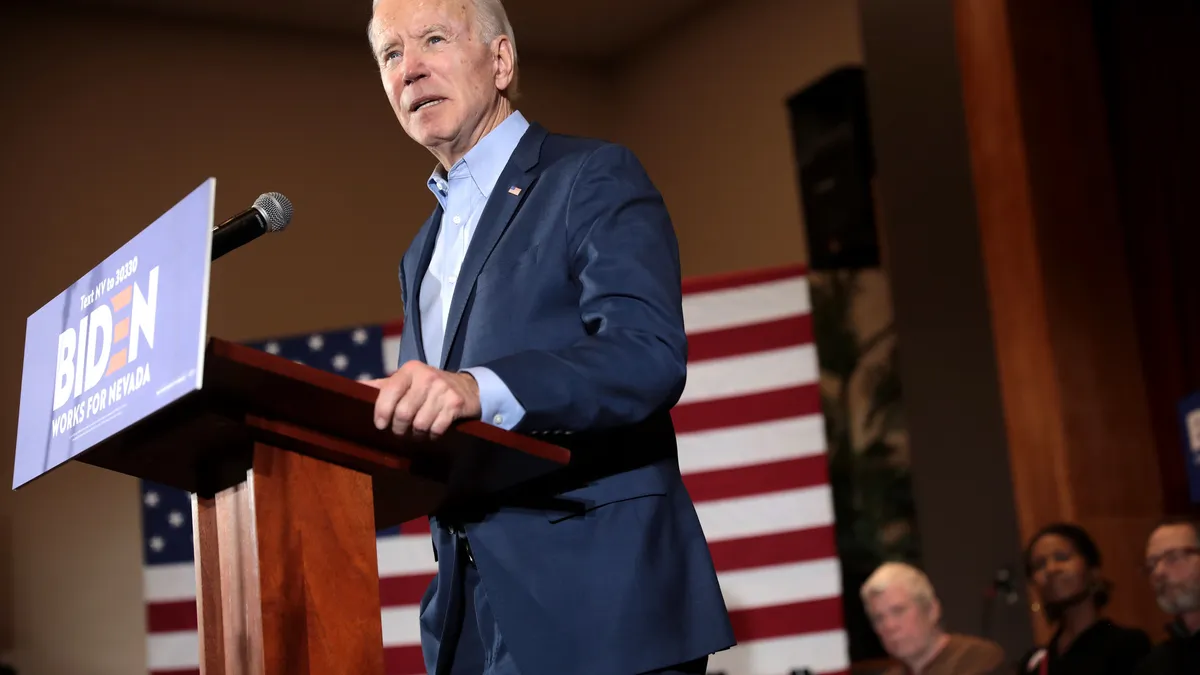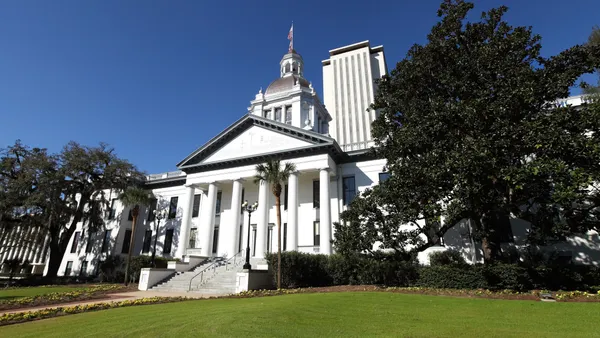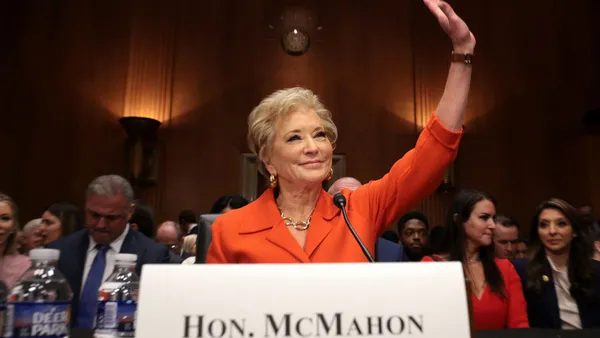Dive Brief:
-
The Biden administration has withdrawn a rule that would have required colleges that participate in the Student and Exchange Visitor Program to disclose if they had financial ties to a Chinese culture education program that frequently partners with U.S. institutions.
-
Political pressures surrounding the controversial Confucius Institutes escalated during the last administration, which accused China of pushing propaganda into American classrooms.
-
The Trump administration's Education Department cracked down on colleges' financial relationships with foreign entities.
Dive Insight:
A withering Senate subcommittee report in 2019 heightened concerns about the Confucius Institutes. The report stated that nearly 70% of colleges that received more than $250,000 in funding from Hanban — the affiliate of the Chinese Ministry of Education that manages the institutes — failed to properly report that information to the federal government.
Section 117 of the Higher Education Act mandates colleges disclose foreign donations and contracts that total $250,000 or more in a year. The Education Department under Trump claimed colleges often failed to follow the law, and said this fall that an investigation unearthed more than $6.5 billion in previously undisclosed foreign money.
The Trump administration continued to pressure colleges on this front in its waning days, opening investigations into six more institutions in mid-January, including Auburn University, a high-profile public institution in Alabama, and Georgia State and Florida State universities. That brought the total number of institutional probes to 19.
It also started pushing through the interim rule that would have forced SEVP-certified colleges to disclose contracts, partnerships or financial transactions with Confucius Institutes or Confucius Classrooms, the K-12 branch, according to media reports.
Several Republican lawmakers blasted the White House for revoking the policy, among them Sens. Marco Rubio of Florida and Tom Cotton of Arkansas, as well as Trump ally Rep. Elise Stefanik of New York.
Stefanik, during the House education committee's discussions on the latest coronavirus rescue package Tuesday, proposed an amendment that would bar colleges from federal relief if they work with an entity owned or controlled by the Chinese government or organized under its laws. The measure was rejected.
Higher education groups have railed against the Trump administration's foreign gifts reporting demands.
The American Council on Education has said it sought clarity on the requirements several times, but it also argued the information the administration asked for exceeded the bounds of law. Trump's Education Department said it could revoke the federal financial aid of colleges that didn't comply.
ACE wrote to Joe Biden in November, asking him to halt the new reporting conditions and reconsider the institutional investigations as president.
Sarah Spreitzer, the group's director of government relations, said Wednesday that ACE wants to work with the new department to retool Section 117, possibly through a negotiated rulemaking. Since writing to the president, she said, ACE has had unofficial conversations with Biden officials about this issue. The new administration will likely demand the same transparency on Section 117 as the Trump Education Department prescribed, but without its "punitive" actions, she said.
The department did not comment by publication time Wednesday.














